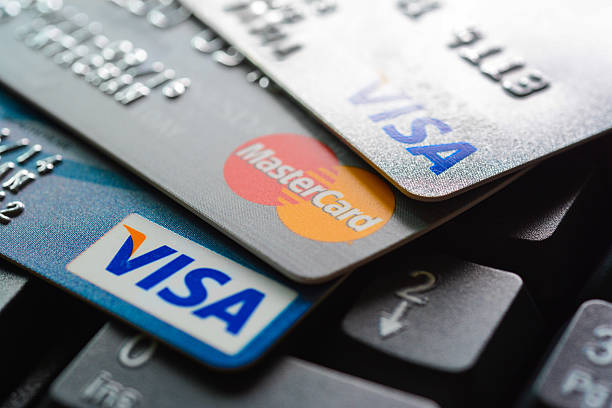Credit cards make spending easy and convenient, often making it feel like we can buy whatever we want right away. But if we’re not careful, this convenience can lead to overspending, which then turns into debt. Over time, these debts can weigh down our budget and even impact our family’s financial health. Let’s look at ways to control credit card spending and why it’s so important for your family’s future.

Why Unnecessary Credit Card Spending is a Problem
When we make small, impulsive purchases with a credit card, it may seem harmless. But these small expenses add up quickly and, with interest, can lead to big debts. Here are a few reasons why overspending on credit cards can be risky:
High-Interest Charges:
Credit card interest rates are usually very high, so if you don’t pay the balance each month, you’ll end up paying a lot more than the original cost.

Financial Stress for the Family:
Debt can cause stress within the family. The added financial pressure can affect your relationship with your spouse, children, and even friends.
Reduced Savings:
When you’re paying off credit card debt, you have less money for saving, investing, or building a better future for your family.

Tips to Avoid Unnecessary Credit Card Spending
To help you spend less on your credit card, try these simple strategies. First, keep track of your spending by writing down each purchase or using an app. Knowing how much you’re spending can help you cut back on things you don’t need. It’s also a good idea to set a monthly spending limit based on what you can afford. Think about your income and your family’s needs, and make sure to stick to this limit to avoid overspending.

For small purchases, consider using cash instead of your credit card. Spending cash can feel different, and it might help you think more carefully before making a purchase. When it comes to bigger purchases, give yourself at least 24 hours to think about it before buying. This time can help you figure out if it’s something you really need or just something you want.

If you can, try to pay off your entire credit card balance each month. Doing this will help you avoid interest and keep you out of debt. If you can’t pay it all, make sure to pay as much as you can above the minimum payment. This will help you reduce your debt faster. Finally, unsubscribe from emails and notifications about deals and discounts from online stores. These tempting offers can lead to impulse buying, so cutting them out can help you stay in control of your spending.

Steps to Get Out of the Credit Card Debt Trap
If you find yourself with credit card debt, there are steps you can take to start paying it off. First, consult a financial planner to guide you in creating a simple budget by listing all of your family’s necessary monthly expenses, such as rent, groceries, and utility bills. Sticking to this budget will help you avoid using your credit card for everyday needs.

Whenever possible, try to pay more than the minimum amount due on your credit card. Paying extra will help you reduce your debt faster and save money on interest charges. You might also consider transferring your balance to a different credit card that offers a lower interest rate. This can make it easier to pay off what you owe.

While you are working on paying off your debt, it’s best to stop using your credit card for new purchases. This way, you won’t add to the amount you already owe. If you find managing your debt difficult, don’t hesitate to seek help from a financial advisor who can assist you in creating a repayment plan.
The Impact of Good Financial Habits on Your Family
When you control your credit card spending, it doesn’t just benefit you; it creates stability for your entire family. Here’s how:
Less Stress: Financial stability reduces stress, creating a happier, healthier home environment.
More Savings for Future Goals: Money that’s not going to credit card interest can be saved for education, vacations, a new home, or other goals.
Financial Security: Reducing debt means you’re prepared for emergencies, protecting your family’s well-being.
Summary
Credit cards can be a helpful tool if used wisely. By setting limits, staying aware of spending, and avoiding impulse buys, you can keep your credit card spending under control. Breaking free from unnecessary credit card expenses can improve your financial health and contribute to better financial goal management, giving your family peace of mind, helping you focus on what truly matters.






